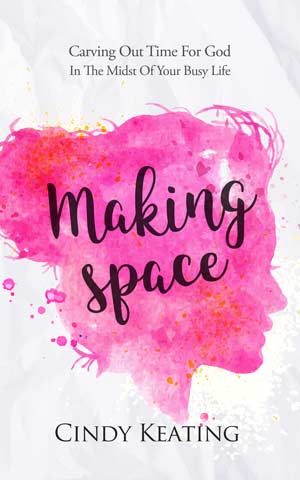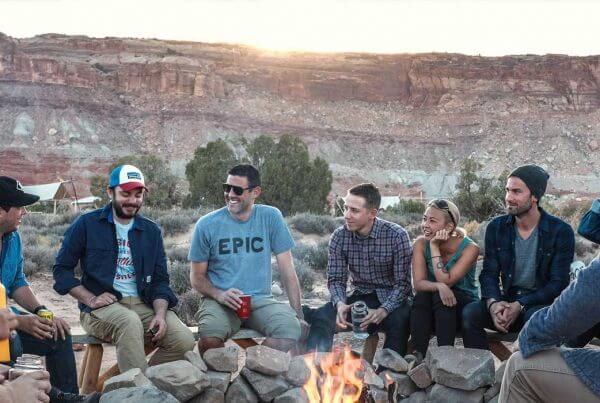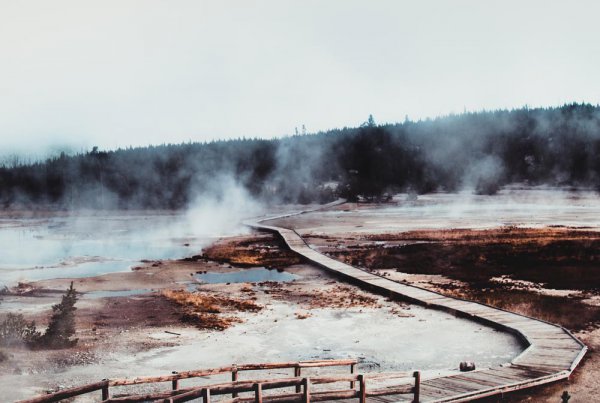She hooked my arm and pulled me off to the side. “How are you?”
Three things popped in my mind:
1. The boys were waiting for me in the car.
2. My in-laws were saving a seat for us at the restaurant.
3. Her 14-year-old daughter was standing right beside her.
For a brief moment I contemplated generically saying, “Good, how are you?” simply so I could get on with my day. But several of my blog titles flashed through my mind:
“In order to have good friends, we need to be good friends.”
“It’s called connection, and quite frankly, we need more of it.”
“Why are we so afraid to be vulnerable?”
Thus, I decided if I wanted anything to change about the saddened state of our idea of community, I had to be willing to change the way I do community first… I had to step out and lead.
So I went for it.
“To be honest, just okay. Chris and I have been in a really hard season for the last two years, and it’s really come to a head in the last eight months.”
Risky move.
I was expecting a sympathetic head tilt – which I hate: “I’m sorry to hear that.”
I was expecting a trite answer – which I also hate: “God won’t give you anything you can’t handle.”
I was expecting the eye dart – ya know, when people don’t know what to say, so they look at your outfit, or the roof, or just behind your ears into the distance as if pondering something profound, or basically anywhere other than your eyes – which I hate the most. “Awe, is there anything I can do?”
But nope.
I was pleasantly surprised.
“I totally get it. Now, spill.”
I discovered three profound truths in that moment.
1. The importance of intentionality.
We tend to wait to open up and share what’s going on in our lives for convenient times only. We want our surroundings to be quiet. We want the atmosphere to be intimate and safe. We want violins to play, birds to sing, and hey, if mini lights could be hung, that’d be cool. A lobby hosting 2000 people is the opposite of quaint. But there, in our corner of the world, it felt safe and quiet and comfortable because her eyes and the sincerity of her words made it so.
Community is not about the location, or convenience, or perfectly orchestrated moments. It’s about you – how intentional you are about listening when someone needs a listening ear, and how intentional you are about opening up when someone offers you a listening ear.
Intentional people produce intentional community.
2. The importance of vulnerability.
It would have been easy for me to clam up. It’s embarrassing to admit when things are tough, especially when you’re an adult and there are teenage kids around. At one point – through my nose wiping and babbling words – I looked at her daughter and apologized that she caught me on a bad day. Her mom stopped me. “Don’t. Don’t apologize. This is good for her to experience. She needs to know that life is hard. She needs to know that marriage is tough. She needs to know that being a mom ain’t all bells and whistles and that life is about real people.” Then her daughter, her 14-year-old daughter, did something that amazed me. She hugged me. She didn’t say a word because her hug spoke volumes, but she leaned in and encouraged me with her warmth. If ever there were a poster moment for the look of mentoring, this was it.
Community is not about answers, or perfectly scripted dialogues, or pretending to have crap all together. Community is about dealing with crap together. It’s about doing life – the thick and thin, the good and bad, the easy to share, the hard to admit, the smiles, the tears and everything else in between. Being open and honest about what we’re going through IS how we make it through.
Vulnerable people produce vulnerable community.
3. The importance of authenticity.
Jill let me spill. She didn’t interrupt. She didn’t look away. She didn’t react. She just listened. And when I was done, she didn’t offer any advice to fix my situation. She simply offered hope by sharing a story from her own experience – a story different from mine, but similarly packaged with the beautiful and messy layers of life’s highs and lows.
Community is sometimes about advice, occasionally about tough love, rarely about opinion, and never about fixing. But it is always about listening, supporting, encouraging, embracing, welcoming, forgiving and loving.
Authentic people produce authentic community.
So while it’s easy to say we want these kinds of people in our lives… that we need this kind of support… that we desire this network of friends… the real question I have for you today is this: for the type of community you seek, will you step out and lead?




